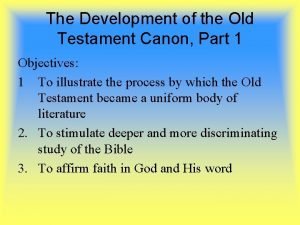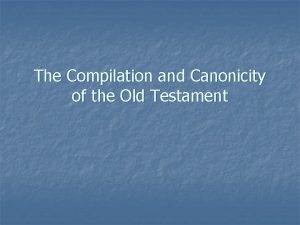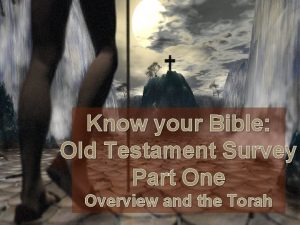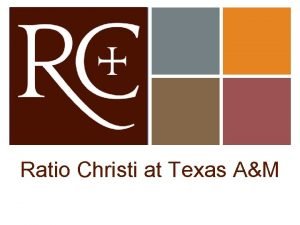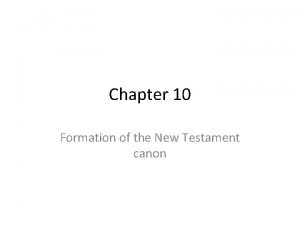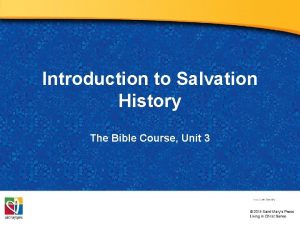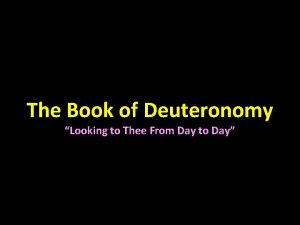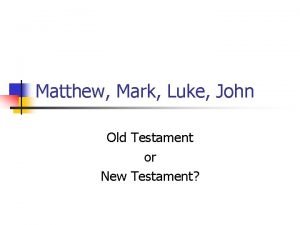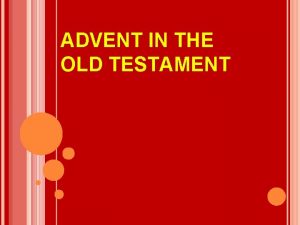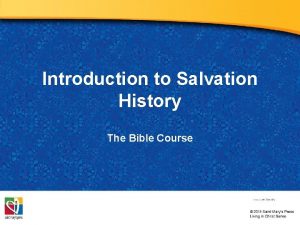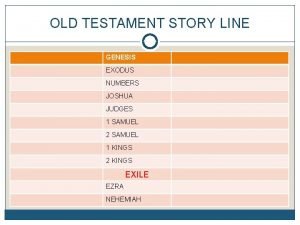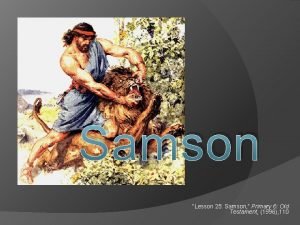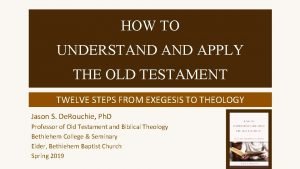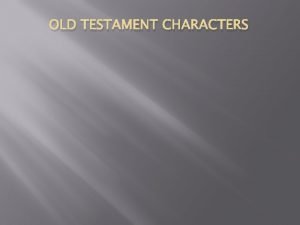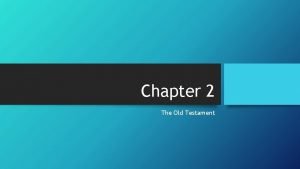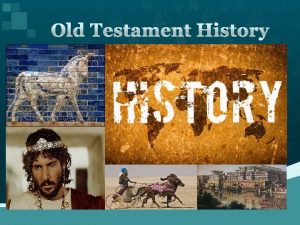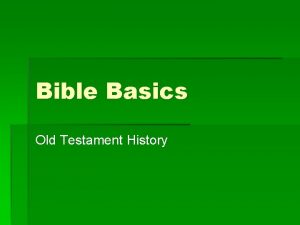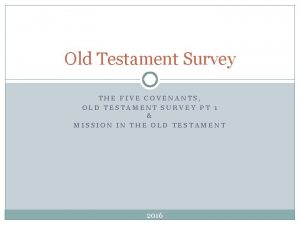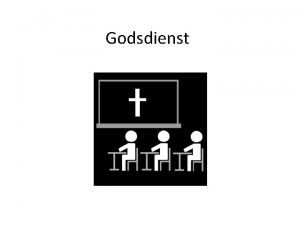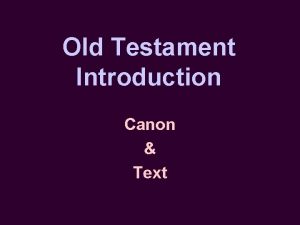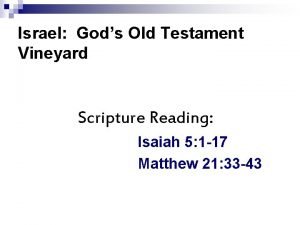Canon of Scripture Part I Old Testament Canon














- Slides: 14

Canon of Scripture Part I

Old Testament Canon • The earliest collection of the written words of God is the Ten Commandments • The Ten Commandments form the beginning of the biblical canon • God himself wrote on two tablets of stone • The tablets were deposited in the ark of the covenant

Ten Commandments • Exodus 31: 18 When the LORD finished speaking to Moses on Mount Sinai, he gave him the two tablets of the covenant law, the tablets of stone inscribed by the finger of God. • Deuteronomy 10: 5 Then I came back down the mountain and put the tablets in the ark I had made, as the LORD commanded me, and they are there now.

Books of Law • The canon grew throughout Israel’s history • Moses wrote Deuteronomy, which was placed beside the ark of the covenant (Deut. 31: 24 -26) • Books of Law • • • Genesis Exodus Leviticus Numbers Deteronomy

Ancient Hebrew Texts • Tanakh • Canon of Hebrew scriptures • Torah • First five books of the Tanakh • Masoretic Text • Authoritative text of the Tanakh • The basis for Old Testament translations

Ancient Hebrew Texts • Last books of Old Testament history: • Ezra, Nehemiah, and Esther • Esther was written after the death of Xerxes I • There were no further additions to OT canon • Protocanonical books • Books of the Christian OT that are included in the Hebrew Bible

Ancient Hebrew Texts • The history of the Jewish people was recorded in other writings, such as the books of the Maccabees, but these writings were not thought worthy to be included with the collections of God’s words from earlier years. • Deuterocanonical books • Books of the Christian OT that are not part of the Hebrew Bible

Council of Trent • Synod • An assembly of the clergy • Third Council of Carthage, 397 AD • A gathering of catholic bishops in North Africa to consider doctrine and discipline • Issued a canon of the Bible • 27 books of NT • 46 books of OT (we accept 39)

Apocrypha § Books in some Bibles, separate from the OT and NT § Catholic and Orthodox Christians regard it as canon § Source of many doctrines unique to Catholicism (purgatory, prayers for the dead, and salvation by works) § Most Protestants reject it as canon § Not accepted into Jewish scripture

Protestant Reformation Martin Luther § 1483 -1546 in Germany § Rejected several teachings and practices of the Roman Catholic Church: § Freedom from God’s punishment for sin can be purchased with money § Challenged authority of Pope § Taught that Bible is primary source of knowledge from God § Excommunicated in 1521

Protestant Reformation § 95 Theses § Written by Martin Luther in 1517 § Protested practices of the Catholic Church § Posted on the door of All Saints’ Church in Wittenberg, Germany

Protestant Reformation § One of the major issues of the Protestant Reformation was sola scriptura. § By Scripture alone § The Bible is the supreme authority in all matters of doctrine and practice

Council of Trent § Held by Roman Catholics (1545 -1563) in Italy § Prompted by the Protestant Reformation (Counter. Reformation) § Rejected sola scriptura § Affirmed two equal forms of God’s revelation: the Bible and church tradition § Affirmed the Vulgate (with apocrypha) as the official Latin Bible

Vulgate § Latin translation of the Bible § Written in late-fourth century by Jerome § Adopted by Council of Trent in the 1500 s as official Latin Bible
 Ot canon
Ot canon Old testament canon timeline
Old testament canon timeline Where is havilah in the bible
Where is havilah in the bible New testament canon
New testament canon Greek word canon
Greek word canon Titus old or new testament
Titus old or new testament What is salvation history in the bible
What is salvation history in the bible Deuteronomy 5:19
Deuteronomy 5:19 Books in old testament how many
Books in old testament how many Matthew mark luke john old testament
Matthew mark luke john old testament Advent in the old testament
Advent in the old testament What's salvation history
What's salvation history Old testament jewish temple layout
Old testament jewish temple layout Samson and delilah lds
Samson and delilah lds How to understand and apply the old testament
How to understand and apply the old testament
